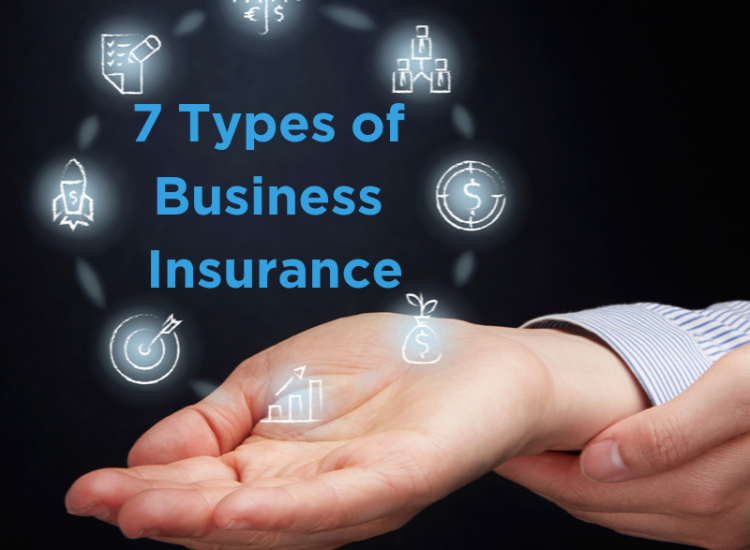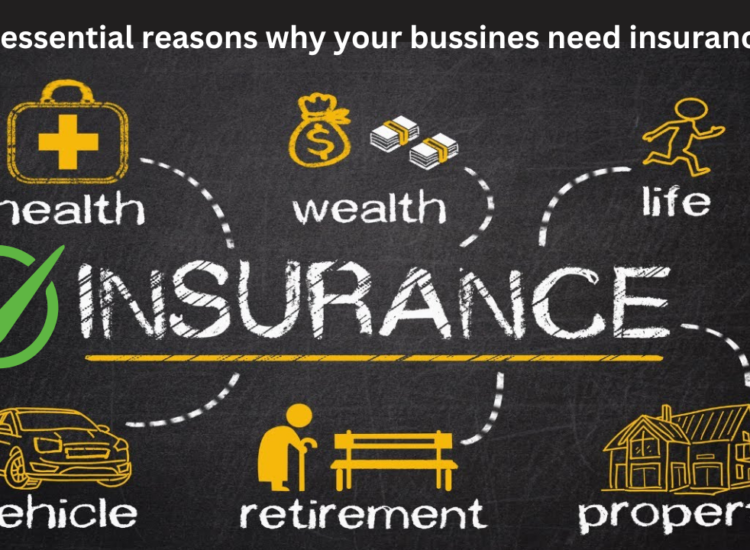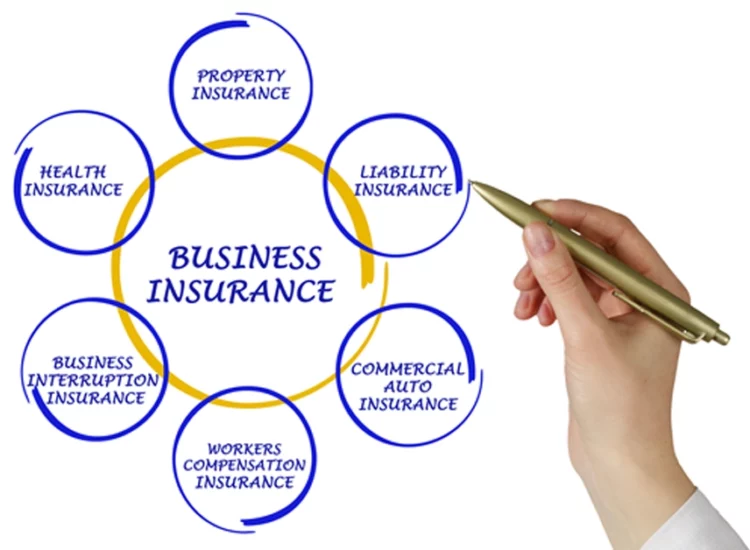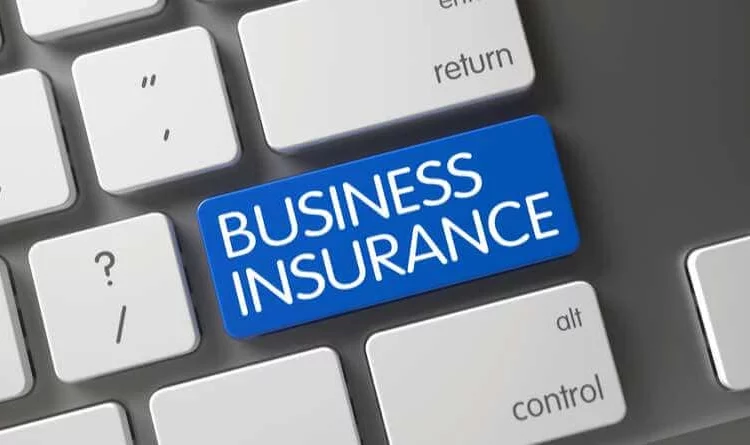Business Insurance for Small Business: Protecting Your Entrepreneurial Dream
Starting and running a small business is an exhilarating yet challenging journey. You’ve poured your heart, soul, and likely a significant amount of capital into your venture. But amidst the daily operations and strategic planning, one crucial aspect often takes a backseat: business insurance. For any small business, having the right insurance coverage isn’t just a responsible practice, it’s a vital shield against unforeseen circumstances that could potentially cripple or even close your doors. This comprehensive guide will delve deep into the world of business insurance for small businesses, exploring why it’s essential, the key types of coverage you should consider, and how to navigate the landscape to secure the best protection for your entrepreneurial dream.
Toc

Understanding Business Insurance for Your Small Business
For a small business, the stakes are often higher. Resources might be limited, and a single significant financial setback could have devastating consequences. This makes understanding and investing in appropriate business insurance paramount.
Why Small Businesses Need Insurance
Imagine a scenario where a customer slips and falls in your retail store, or a fire damages your office building, or a key piece of equipment malfunctions, halting your operations. Without adequate business insurance, your small business would be entirely responsible for the resulting costs, which could include legal fees, medical expenses, repair or replacement costs, and lost income. Insurance acts as a financial safety net, absorbing these potential shocks and allowing you to continue operating even after an unexpected event.
Furthermore, business insurance offers crucial protection for your business assets. As a small business owner, you’ve likely invested significant personal and business resources. Without insurance, these assets are at risk in the event of a lawsuit or other covered loss. For sole traders, this risk can even extend to personal assets like your car or home. An insurance policy can protect you and your assets if legal proceedings are launched against your small business.
In many industries, business insurance isn’t just about protection; it’s also a necessity for credibility and compliance. Clients may require you to have certain types of insurance before they agree to work with you. Moreover, depending on your industry and location, specific insurance coverages, such as workers’ compensation, might be legally mandated. Investing in the right business insurance demonstrates professionalism and trustworthiness, fostering stronger relationships with customers and partners.
Key Types of Business Insurance for Small Businesses
The world of business insurance for small businesses can seem complex, with a variety of coverage options available. However, understanding the most common types of insurance is the first step towards building a robust protection plan. Here are some key types of business insurance that most small businesses should consider:
- General Liability Insurance: This is often considered the cornerstone of small business insurance. It provides coverage for claims of bodily injury or property damage to third parties (like customers or visitors) that occur as a result of your business operations. This can include accidents on your premises, injuries caused by your products or services, and even advertising injuries like libel or slander.
- Professional Liability Insurance (Errors & Omissions Insurance): This type of insurance is crucial for small businesses that provide professional services or advice, such as consultants, accountants, lawyers, and IT professionals. It protects against claims of negligence, errors, or omissions in the services you provide that result in financial loss for your clients.
- Commercial Property Insurance: If your small business owns or rents physical property, such as an office building, retail space, or warehouse, this insurance is essential. It covers damages to your building, equipment, inventory, and other business property caused by covered perils like fire, wind, hail, and theft.
- Business Income Insurance (Business Interruption Insurance): This coverage helps replace lost income and cover operating expenses if your small business is temporarily forced to close due to a covered loss, such as a fire or natural disaster. This can be a vital lifeline for ensuring your business can survive a period of disruption.
- Workers’ Compensation Insurance: If your small business employs staff, workers’ compensation insurance is mandatory in most states. It provides benefits to employees who suffer work-related injuries or illnesses, covering their medical expenses and lost wages.
- Commercial Auto Insurance: If your small business uses vehicles for business purposes, whether they are owned by the company or your personal vehicles used for work, you’ll likely need commercial auto insurance. This provides coverage for accidents, property damage, and injuries involving your business vehicles.
- Cyber Insurance: In today’s digital age, cyber threats are a significant risk for small businesses. Cyber insurance helps cover the costs associated with data breaches, cyberattacks, and other technology-related incidents, including notification costs, data recovery, and legal expenses.
Navigating the Landscape of Small Business Insurance Policies
With a foundational understanding of why business insurance is critical and the main types of coverage available, the next step is to navigate the process of selecting the right policies for your small business.
Related articles 01:
2. https://nordics.vn/insurance/mmoga-why-finding-the-right-business-insurance-near-you-matters/
Essential Insurance Coverages Every Small Business Should Consider
While the specific insurance needs of each small business will vary, there are certain essential coverages that nearly every entrepreneur should consider as the bedrock of their protection plan.
General Liability Insurance remains a non-negotiable for most small businesses. The risk of third-party claims arising from accidents or injuries is ever-present, regardless of your industry. This coverage provides essential protection against potentially costly lawsuits and settlements.
For small businesses with a physical presence, Commercial Property Insurance is equally vital. Protecting your physical assets – whether it’s your office, store, or equipment – ensures that you can recover and rebuild in the event of damage or loss. Coupled with Business Income Insurance, this forms a strong defense against disruptions to your operations.
If your small business has employees, Workers’ Compensation Insurance is not just a legal requirement in most states; it’s also a crucial element in protecting your team. By providing coverage for work-related injuries and illnesses, you demonstrate your commitment to your employees’ well-being and mitigate the risk of costly lawsuits.
Finally, in our increasingly interconnected world, Cyber Insurance is rapidly becoming an essential coverage for small businesses. Even if you don’t handle sensitive customer data directly, your reliance on technology for daily operations makes you vulnerable to cyberattacks that could lead to significant financial losses and reputational damage.
While these coverages form a strong foundation, it’s important to remember that other types of business insurance, such as Professional Liability Insurance, Commercial Auto Insurance, and Umbrella Insurance (which provides additional liability coverage above the limits of your other policies), may be necessary depending on your specific industry and risk exposure.
Tailoring Your Business Insurance to Your Specific Industry
The specific business insurance needs of a small business will heavily depend on the industry in which it operates. A one-size-fits-all approach simply won’t suffice when it comes to protecting your unique risks.
For instance, a small business in the construction industry faces vastly different risks than a small business operating as a freelance graphic designer. A construction company will likely need robust general liability insurance to cover potential accidents on job sites, as well as commercial auto insurance for their fleet of vehicles and workers’ compensation insurance for their employees working in potentially hazardous conditions. They might also consider builder’s risk insurance to cover projects under construction.
On the other hand, a freelance graphic designer might have lower needs for physical property insurance but a higher need for professional liability insurance to protect against claims of errors or omissions in their design work. They might also consider cyber insurance to protect their computer systems and client data.
Related articles 02:
1. https://nordics.vn/insurance/mmoga-why-finding-the-right-business-insurance-near-you-matters/
Similarly, a small business in the food and beverage industry will need general liability insurance to cover potential foodborne illnesses or accidents in their establishment. They might also need specific coverages like liquor liability insurance if they serve alcohol. A retail small business will need commercial property insurance to protect their inventory and storefront, as well as general liability insurance to cover customer injuries.
The key is to carefully assess the specific risks associated with your industry and choose business insurance policies that directly address those vulnerabilities. Consulting with an experienced insurance agent who understands your industry can be invaluable in identifying the right coverage options.
Securing the Future of Your Small Business with the Right Insurance
Investing in the right business insurance is not just an expense; it’s a strategic investment in the long-term success and stability of your small business. By taking the time to carefully consider your needs and options, you can secure the future of your entrepreneurial venture.

Factors to Consider When Choosing Small Business Insurance
When selecting business insurance for your small business, several key factors should guide your decision-making process:
- Assess Your Risks: The first step is to thoroughly evaluate the specific risks your small business faces. Consider your industry, your operations, your physical location, your employees, and your potential liabilities. This risk assessment will help you identify the types of coverage that are most crucial for your protection.
- Determine Your Budget: While it’s essential to have adequate coverage, you also need to consider your budget. Business insurance premiums can vary significantly depending on the types and limits of coverage you choose. Work with your insurance agent to find a balance between comprehensive protection and affordability.
- Compare Quotes from Multiple Insurers: Don’t settle for the first insurance quote you receive. Shop around and compare quotes from several different insurance companies. This will give you a better understanding of the market rates and help you identify the best value for your money.
- Understand Policy Limits and Deductibles: Carefully review the policy limits (the maximum amount the insurer will pay for a covered claim) and deductibles (the amount you’ll need to pay out-of-pocket before your coverage kicks in). Choose limits that adequately protect your potential losses and deductibles that you are comfortable managing.
- Read the Fine Print: Before signing any insurance policy, take the time to read the fine print and understand the terms and conditions, including any exclusions or limitations in coverage. If you have any questions, don’t hesitate to ask your insurance agent for clarification.
- Consider Bundling Policies: Many insurance companies offer discounts when you bundle multiple business insurance policies together. If you need several types of coverage, ask about the potential savings of bundling them with the same insurer.
- Work with an Experienced Insurance Agent: Navigating the complexities of business insurance can be challenging. Working with an experienced insurance agent who specializes in small business insurance can provide invaluable guidance and help you make informed decisions about your coverage needs.
Tips for Managing and Potentially Lowering Your Business Insurance Costs
While business insurance is a necessary expense, there are strategies you can employ to manage your costs effectively and potentially lower your premiums:
- Implement Risk Management Measures: Proactive risk management can help prevent incidents that lead to insurance claims. This includes implementing safety protocols, training employees properly, and maintaining your property and equipment in good condition. A good claims history can also lead to lower premiums.
- Increase Your Deductibles: Opting for higher deductibles on your insurance policies can lower your premium payments. However, make sure you choose a deductible amount that you can comfortably afford to pay out-of-pocket if you file a claim.
- Bundle Your Policies: As mentioned earlier, bundling multiple business insurance policies with the same insurer can often result in significant discounts.
- Regularly Review Your Coverage: Your small business‘s insurance needs will likely evolve over time as your business grows and changes. Regularly review your policies with your insurance agent to ensure that your coverage remains adequate and that you’re not paying for unnecessary coverage.
- Ask for Discounts: Don’t hesitate to ask your insurance company about potential discounts for factors like having a good safety record, implementing security measures, or being a member of certain professional organizations.
- Pay Annually: Some insurers offer a discount if you pay your annual premium in one lump sum rather than in monthly installments.
- Shop Around Regularly: Even if you’re happy with your current insurance provider, it’s still a good practice to periodically shop around and compare quotes from other insurers to ensure you’re still getting the best possible rate.
In conclusion, business insurance is not just a formality for a small business; it’s a fundamental component of responsible entrepreneurship. By understanding the importance of insurance, exploring the key types of coverage, carefully navigating the policy landscape, and implementing strategies for managing costs, you can protect your small business from unforeseen financial setbacks and secure its future for years to come. Investing in the right business insurance for your small business is an investment in your peace of mind and the longevity of your entrepreneurial dream.










